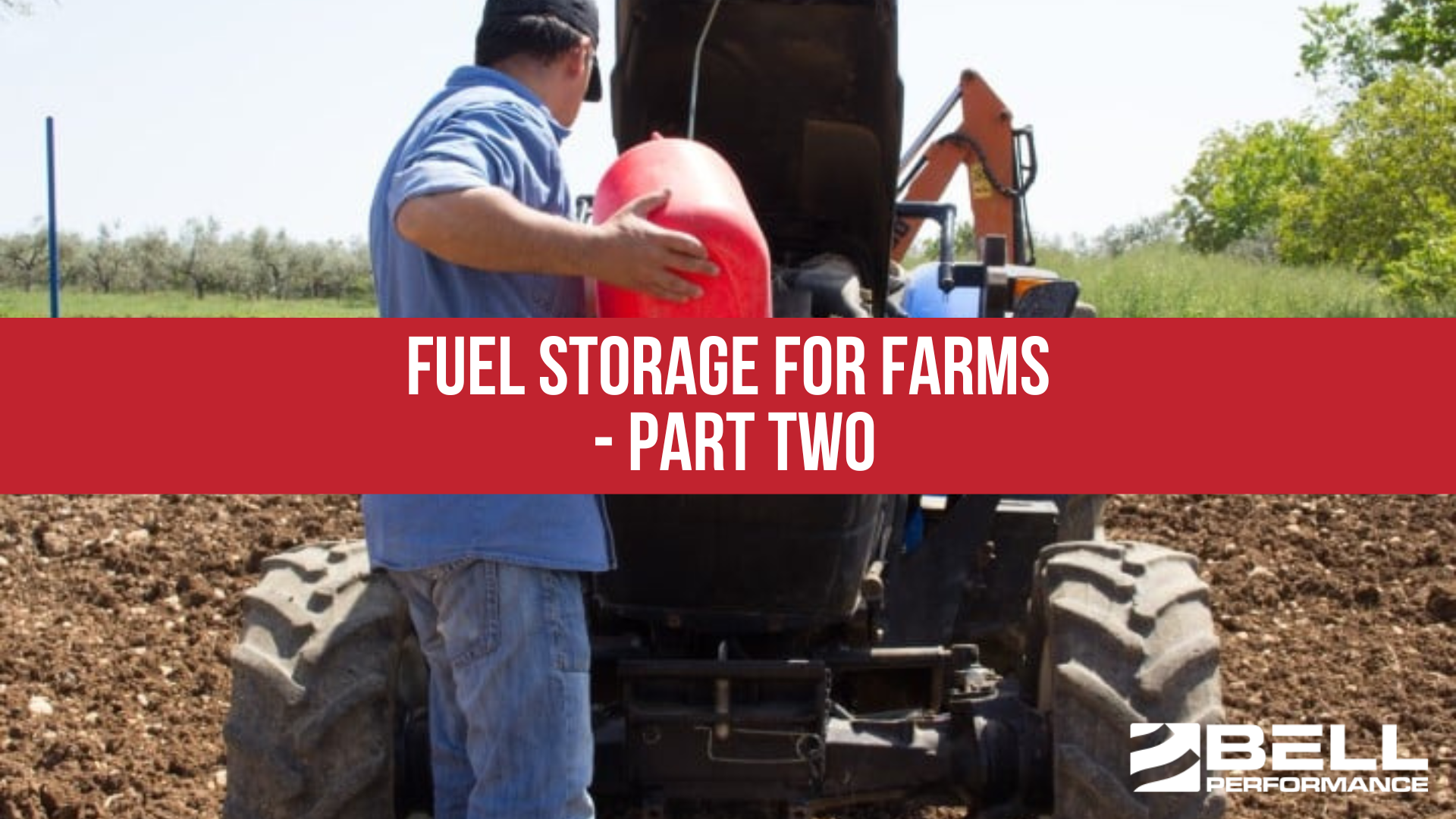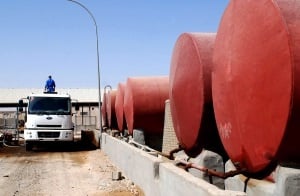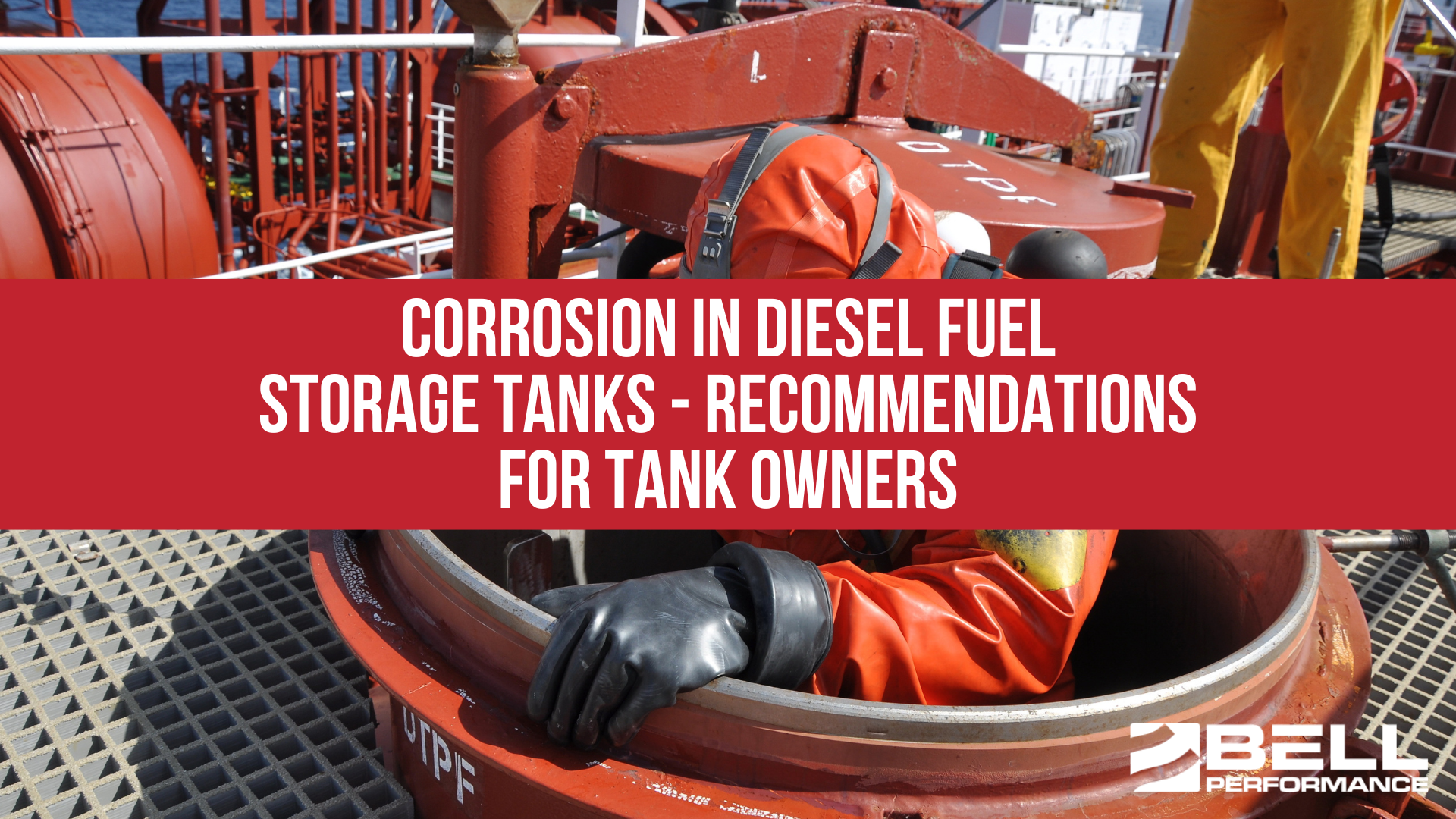Fuel Storage for Farms - Part Two
For fuel storage on farms, some kinds of storage tanks are better than others. The color, design, and tank material can all play a role in protecting...
2 min read
Erik Bjornstad : May 30 2024
How many fuel storage tanks are registered in the United States? Just counting diesel tanks, that number pushes more than one million. And that’s just the underground tanks – tanks that have more than 90 percent of their volume underground. Whether they're steel/aluminum, composite (metal combined with or wrapped with fiberglass), or even thermoplastic, they’re all regulated by the EPA’s Underground Storage Tank Program, which seeks to reduce the incidence of petroleum leaks and contamination of groundwater. I think we can all agree that those are good things to work to prevent.
How are the issues of stored fuel quality and diesel fuel storage tanks health intertwined? Does one affect the other?
Looking at it from both sides, it seems obvious that storage tank health can impact fuel quality. But it should also be clear that it flows the other way, too – fuel quality can affect the condition of fuel storage tanks, for better and (definitely) for worse.
Here are the three ways that storage tank condition can affect fuel quality:
If the structural integrity of the tank is compromised, you can get a loss of fuel inventory as it seeps out over time. Never a good situation. But it’s not just fuel leaking out that you may have to worry about…..
Ingress is a fancy way of saying that if the tank has a leak on top and there’s a rain storm, significant volumes of water can leak into the tank and flow into the fuel. Or maybe someone leaves the top off after checking something. Or water builds up in the spill bucket and rushes in when a worker takes the lid off to stick the tank. You’d be surprised how often this kind of thing happens. Fuel filtration professionals will tell you that seemingly inconsequential things, like the type of vent cap used, can make a big difference in keeping water out of the tank.
If parts of the fuel tank are damaged with corrosion, that can carry over into the fuel. Not necessarily because of something like rust making it through the filters and to the end user, but instead from the concept that corrosion in an area of the tank means chemical reactions happening. Anywhere that something is actively reacting with something else, that means it’s more likely that reactive precursors will be floating around, looking to react with and break down the fuel that otherwise would be minding its own business.
On the flip side, if something is happening with the fuel, the storage tank that encloses the fuel can most definitely be affected by that.
Here are two ways that fuel can affect tank quality:
Good healthy fuel does not affect a fuel tank. Fuel also happens to be a favorite environment for microbes like bacteria and fungi; they need the fuel to be the medium in which they grow Their presence leads to acids and corrosive byproducts that, over time, will lead to corrosive damage in the fuel storage tank.
Water is the leading cause of corrosion and damage in tanks. Fuel plays a factor because it offers a medium for the water to be absorbed and dropped to the bottom of the tank. Especially if it is an ethanol blend, which will actively pull water out from the ambient air. On the diesel side, ultra-low sulfur diesel (with or without an extra 2-5% biodiesel added) also holds more water than fuels of the past, making the water situation worse.
The main takeaway here is that keeping on top of the condition of your stored fuel not only protects the value of the fuel investment, but it will protect the more expensive tank you put the fuel into. And the vice-versa also applies. Making sure that storage tanks don’t have any leaks and are properly maintained will also ensure the fuel value inside is protected.

For fuel storage on farms, some kinds of storage tanks are better than others. The color, design, and tank material can all play a role in protecting...

The typical conditions of summer work together to decrease the effective storage life of diesel fuel. That’s especially true with ultra-low sulfur...

One of our most popular webinars from the past dealt with such an important issue - Diesel Fuel Storage Tank Corrosion - that we thought it was...